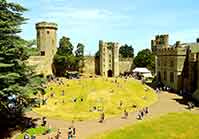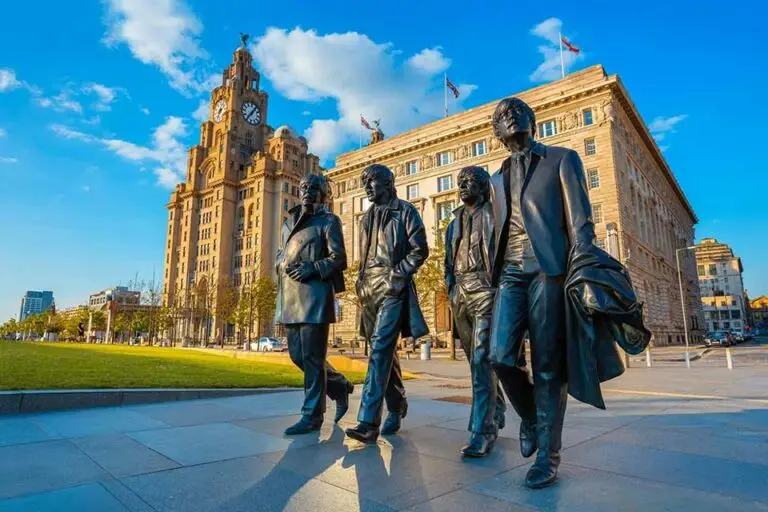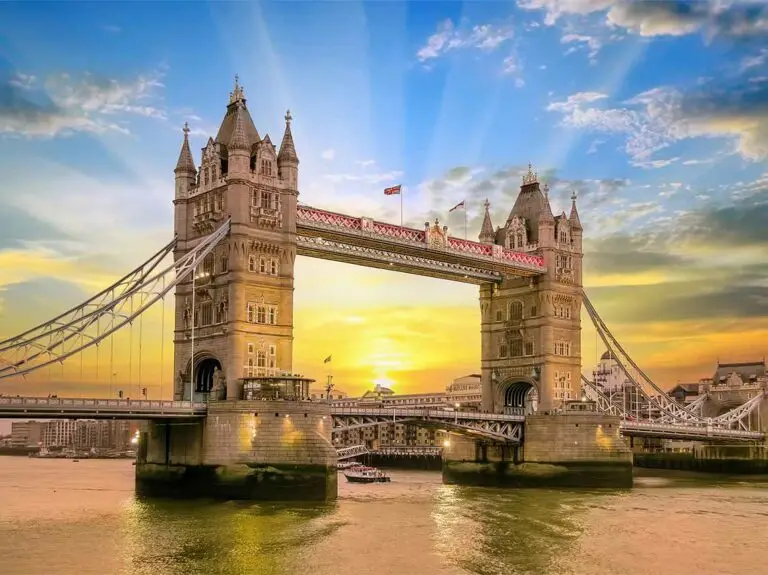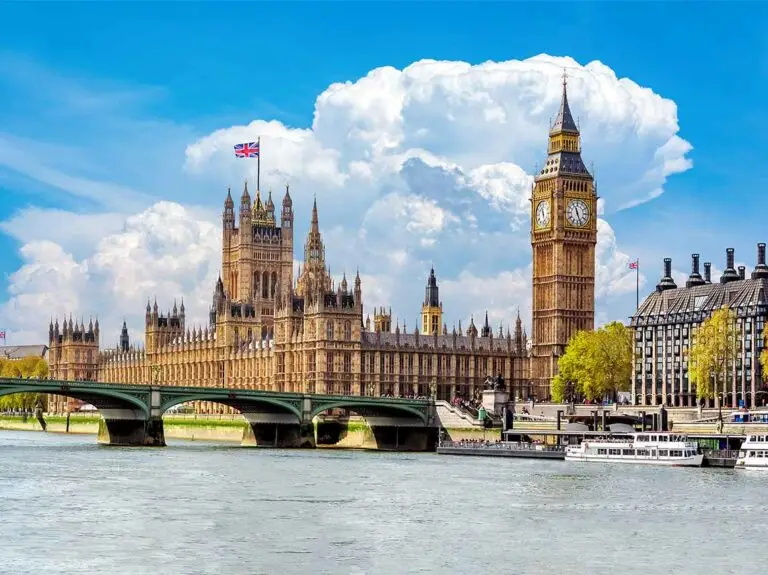This blog is dedicated to exploring the history of English football and its cultural impact. Through a detailed examination of the development of football in England and its role in society, we will seek to understand the ways in which football has shaped and been shaped by English culture.
Experiences You Can Include in a Private English Football Tour
Before we get into the blog below, remember that if you’d like to start planning a tour of English Football history, visiting your favorite stadiums for guided tours, and possibly watching a couple of EPL (English Premier League) games, then get in touch with our expert planners to receive a complimentary itinerary for a Private Football Tour of England. Here are just a few activities you can build into a personalised itinerary:
⚽ Stadium Tours
- Go behind the scenes at iconic stadiums such as Old Trafford, Anfield, Wembley, Tottenham Hotspur Stadium, Emirates, Villa Park and much more!
🎟️ Premier League Match Day
- Experience VIP hospitality and the atmosphere of a live EPL game, such as the North London derby, Manchester derby, Merseyside derby, or any game of your choice!
🏆 National Football Museum (Manchester)
- Explore the world’s biggest collection of football artefacts with a private guide.
📍 Heritage Football Towns
Visit early football hubs like Sheffield, Nottingham, and Preston.
🍻 Fan Culture Experiences
- Feel like a local as you visit match-day pubs and engage in supporter traditions, local chants and rituals.
Whether you support a specific club, want to follow a particular era of football history, or simply want to experience the atmosphere of English match days, your football itinerary can be fully customized.
Origins of Football in England

Football, in some form or another, has been played in England for centuries. The earliest known references to football in England date back to the medieval period, when the game was played with a ball made of inflated animal bladders and was known as “futball.”
During the medieval period, football was a rough and often violent sport that was played on the streets and in fields. It was popular among all social classes and was played by both men and women.
Development of the modern game in the 19th century
In the 19th century, football began to evolve into the modern game we know today. This process was shaped by a number of factors, including the growth of industrialization and urbanization, the influence of public schools, and the development of new technologies and materials.
One of the key developments in the 19th century was the creation of standardized rules for the game. In 1863, the Football Association (FA) was founded in England, and it published the first official set of rules for football. These rules, which included the use of a round ball and the prohibition of handling the ball, became the basis for the modern game of football.
The FA played a key role in the development of football in England and helped to establish the sport as a popular and organized pastime. In the late 19th century, the first professional football clubs were founded in England, including Preston North End and Aston Villa. These clubs helped to further popularize football and laid the foundations for the growth of professional football in the 20th century.
The growth of English football in the 20th century
In the early 20th century, football in England continued to grow and evolve. One of the key developments was the formation of the English Football League (EFL) in 1888. The EFL was the first national league system for football in the world and was made up of 12 clubs.
The EFL was a major step forward for football in England and helped to establish the sport as a professional and organized industry. It also played a key role in the growth of football as a popular spectator sport, with fans attending matches in large numbers.
The establishment of the FA Cup and other major competitions
Another important development in the 20th century was the establishment of the FA Cup, the oldest football competition in the world. The FA Cup was first played in 1871 and has since become a major event in English football. In addition to the FA Cup, there are also other major competitions in English football, such as the League Cup and the Community Shield.
In the 20th century, professional football in England continued to grow and expand. The EFL was expanded to include more clubs, and the top division, the Premier League, was created in 1992. The Premier League has become one of the most popular and lucrative football leagues in the world and has helped to establish English football as a major global sport.
In addition to domestic success, English football has also enjoyed international success, with the national team winning the World Cup in 1966 and reaching the semi-finals of major tournaments such as the European Championship and the World Cup.
The role of football in English society and culture

Football has played a central role in English society and culture for over a century. It is not just a sport, but a major cultural force that has influenced and been influenced by other aspects of life in England.
Football has shaped English culture in a number of ways. It has brought people together and provided a common focus for communities and national pride. It has also been a source of entertainment and a way for people to escape the stresses of everyday life.
Football has also had a significant impact on other aspects of culture, such as music, art, and literature. Many songs, paintings, and poems have been inspired by football, and the sport has been featured in numerous books, films, and television shows.
The global reach of English football and its influence on other countries
In addition to its influence on English culture, football in England has also had a global reach. English football clubs and players have attracted fans from around the world, and the Premier League has become one of the most popular and lucrative football leagues in the world. English football has also had a major influence on the development of football in other countries, with many other countries adopting the rules and practices of English football.
The role of football in English national identity and pride
Football has played a significant role in shaping and reflecting English national identity. It has helped to define what it means to be English and has been a source of national pride for many people.
Football has also been a way for English people to express their national identity and pride through their support of their favorite clubs and national team. The rivalry between different clubs and the competition between national teams have helped to create a sense of national identity and pride.
The role of football in promoting and celebrating English pride
In addition to reflecting English national identity, football has also played a role in promoting and celebrating English pride. Football matches and tournaments have often been used as a way to celebrate English achievements and to promote national pride.
For example, the 1966 World Cup, which was won by England, was seen as a major national triumph and was celebrated with parades and public events. Similarly, the success of English clubs in European competitions, such as the Champions League and the Europa League, has been seen as a source of national pride.
The future of English football and its cultural impact
In the 21st century, English football has faced a number of challenges. One of the biggest challenges has been the increasing financial pressure on clubs, which has led to rising ticket prices and concerns about the affordability of football for fans.
Other challenges facing English football include issues related to hooliganism, racism, and discrimination, as well as the impact of the globalization of football and the increasing influence of foreign owners and players.
Despite these challenges, it is likely that football will continue to play a central role in English culture in the future. Football has a long and rich history in England, and it has the potential to continue to shape and be shaped by culture in the 21st century and beyond.
Sample 7 Day Private Football Tour Itinerary
We can design a new football itinerary from scratch but here’s a rough template to show you how your private football tour could look:
Day 1 – London Football Origins
- Explore where the FA was founded, followed by a private tour of the Arsenal Museum.
Day 2 – VIP Experience at Premier League Game in London
- Private hospitality at the Emirates, Stamford Bridge or Tottenham Hotspur Stadium.
Day 3 – Wembley Stadium Tour
- Visit the players dressing room, stand pitch side and see historical exhibits.
Day 4 – Manchester: National Football Museum
- Explore the world’s biggest collection of football artefacts on a private tour.
Day 5 – Old Trafford Tour
- Walk the pitchside tunnel, museum access, optional meet-a-player.
Day 6 – Liverpool: The Story of Anfield
- Behind the scenes at Liverpool FC with a private tour of Anfield. You’ll also have the options for an afternoon Beatles tour in their hometown.
Day 7 – Sheffield & Nottingham: Birthplace of the Rules
- Visit the world’s oldest clubs and historic pitch sites.
How to Experience English Football
If you’d like to find out more about the history and culture of the beautiful game in England, and even be in attendance for one of the most prestigious Premier League games, get in touch with our tour planners, and we will begin planning your dream football experience.
















